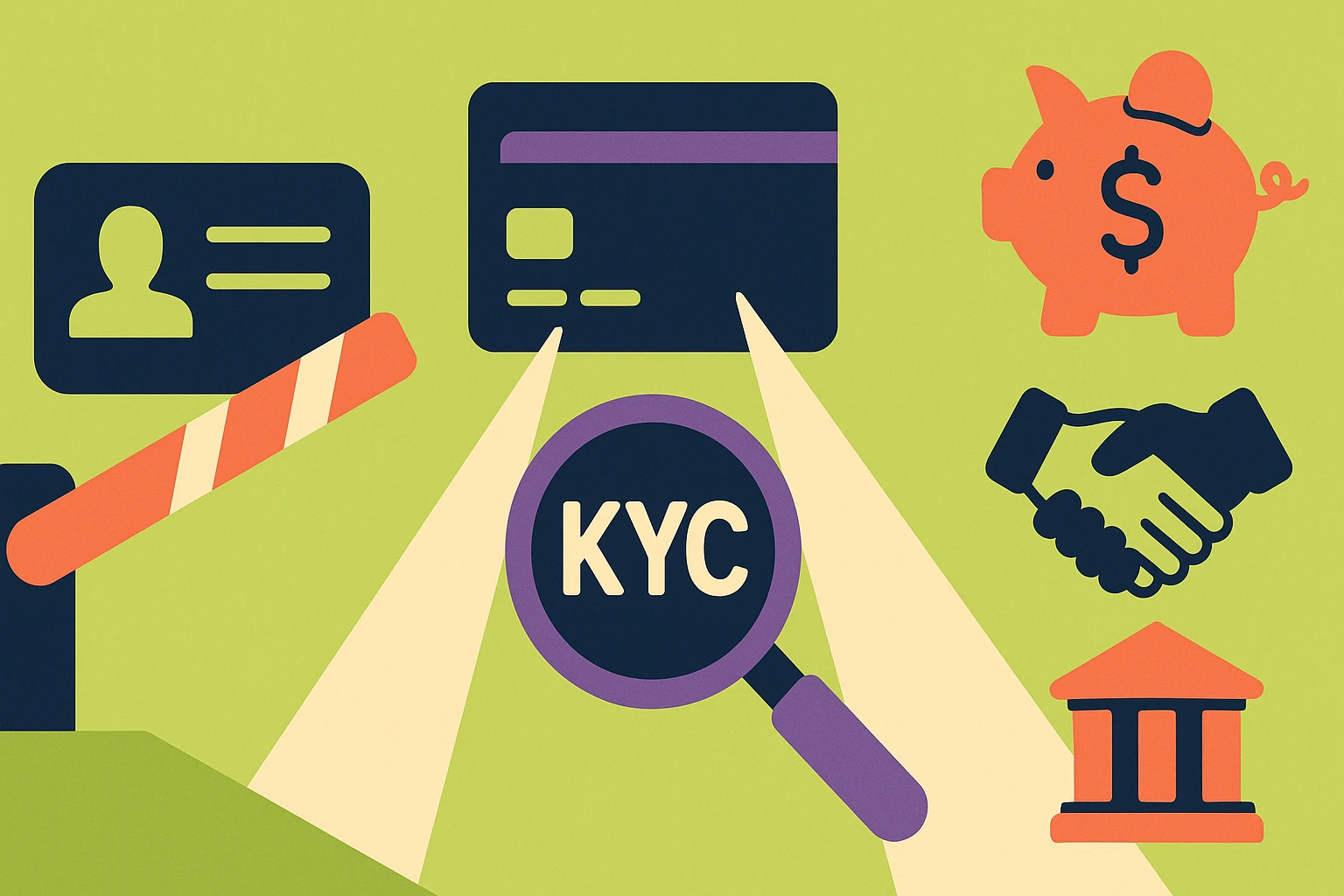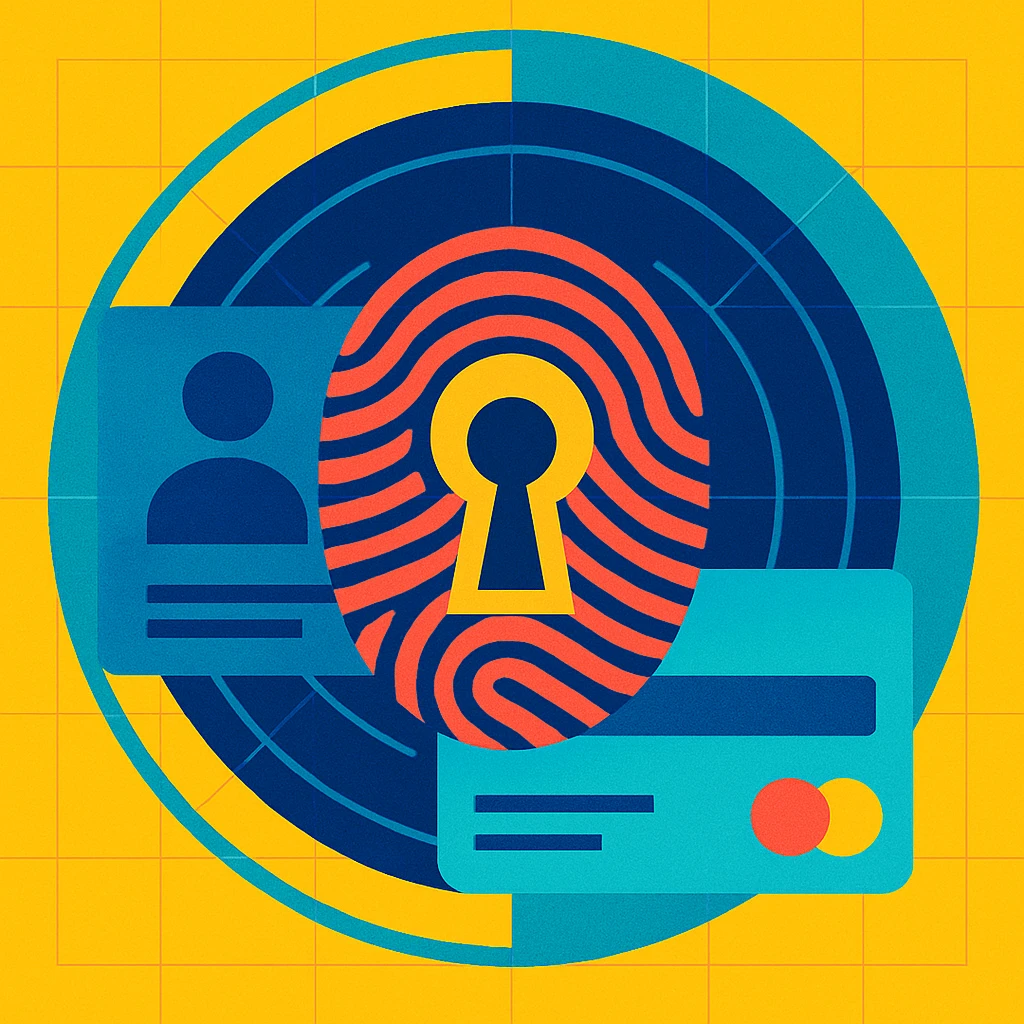Think you can get a credit card without ID? This article explains why card issuers require identification, the risks of trying to get a credit card no ID, and safe alternatives you can use to establish credit.

Why banks and card issuers almost always require government-issued ID
Contents
- 1 Why banks and card issuers almost always require government-issued ID
- 2 How identity verification actually works: KYC, AML, and data checks
- 3 Common alternatives applicants try — and why they usually fail
- 4 Legal and financial consequences of attempting to obtain credit without proper ID
- 5 Legitimate pathways to access credit when you lack a standard ID
- 6 Special considerations for immigrants, refugees, and travelers
- 7 How to build or repair credit legally without a traditional credit card
- 8 Scams, red flags, and how to protect yourself
- 9 FAQ
- 10 Key takeaways
- 11 Resources
Regulatory reasons: identity and fraud prevention
Issuers require government-issued ID because regulators and law require them to know who they’re doing business with. Anti-money-laundering (AML) and counter-terrorist financing laws force financial institutions to collect reliable identification information before opening accounts or issuing credit.
Liability for fraud and chargebacks
Without verified identity, banks are exposed to fraud losses, chargebacks, and regulatory penalties. That risk increases costs for all customers, so issuers adopt strict identity checks as standard practice.
Risk-based underwriting and compliance
Beyond legal obligations, issuing companies use identity as part of underwriting: matching a person’s name, SSN or ITIN, and address to credit files helps determine eligibility and credit limits.
How identity verification actually works: KYC, AML, and data checks
Regulatory drivers: KYC and anti-money laundering laws
KYC (Know Your Customer) and AML rules require banks to verify name, date of birth, and a government identifier for most new relationships. These rules are enforced by regulators and create reporting and recordkeeping obligations for banks.
Document checks vs. database/credit bureau matching
Issuers typically combine physical or digital document checks with database queries. They may validate a driver’s license, passport, or other ID images, then cross-check names, Social Security numbers or ITINs, and addresses against credit bureaus and public records.
Digital identity tools and database checks
Fintech and bank portals use vendor services for biometric checks, document scanning, and multiple database matches. These services speed verification and detect inconsistencies that signal fraud.

Common alternatives applicants try — and why they usually fail
Using alternative documents: when it might work
Some banks accept non-driver IDs such as state ID cards, passports, or consular IDs. A small number will accept an ITIN in place of an SSN. But policies vary widely and many mainstream card issuers still require stronger proofs like a passport and SSN/ITIN match.
Third-party services and why they fail
Online brokers or services claiming to “get credit card no ID” are often scams or illegal middlemen. They may promise approvals using shallow identification or pooled identities — approaches that trigger fraud alerts or criminal exposure.
Borrowed IDs, fake documents, and synthetic identities
Using someone else’s ID or a forged document is illegal. Synthetic identity schemes (mixing real and fake details) may pass initial checks but often collapse when lenders request proof of address, employment, or when debt collectors escalate.
Legal and financial consequences of attempting to obtain credit without proper ID
Criminal charges and penalties
Using a fake ID, stolen identity, or forged documents can lead to charges such as identity theft, fraud, forgery, and obtaining property by false pretenses. Convictions may carry fines, probation, or prison time depending on the severity and jurisdiction.
Civil liability and restitution
Banks and creditors can sue for losses, demand repayment, and seek restitution. Fraud convictions often result in court-ordered restitution that survives bankruptcy in some cases.
Long-term practical barriers: frozen accounts, blacklists, and loss of access
Even without criminal charges, banks can close accounts, freeze funds, and share fraud alerts through industry networks. A fraud marker can make it far harder to open accounts or get credit legally for years.
Legitimate pathways to access credit when you lack a standard ID
Secured credit cards: how they work and eligibility
Secured cards require a refundable security deposit that becomes your credit line. Many issuers use simplified identity checks but still require government ID or alternative documentation. Pros: builds credit with responsible use. Cons: requires cash for deposit and still may need some ID.
Credit‑builder loans and community programs
Credit‑builder loans from community banks, credit unions, or nonprofits let you borrow a small amount that is held in a savings account while you make payments. Payments are reported to credit bureaus, helping you establish history. Eligibility tends to be more flexible than unsecured credit cards.
Co-signers, authorized users, and alternatives
Becoming an authorized user on someone else’s account can build credit without a separate card application. A co-signer can enable approval for a standard unsecured card, but both parties assume shared responsibility for payments.
Banks, credit unions, and fintechs that accept alternative documentation
Some community banks and credit unions accept alternative IDs (consular IDs, passports, or ITINs). Fintechs focused on newcomers may allow account opening with less conventional documents but will still perform identity checks. Check policies in advance and work with licensed institutions.
Special considerations for immigrants, refugees, and travelers
Using ITINs, foreign passports, and consular IDs
An ITIN (Individual Taxpayer Identification Number) can sometimes be used where an SSN is requested. Many issuers accept foreign passports or consular IDs for photo ID, but they may still request proof of address or tax ID. Requirements differ by bank; always confirm before applying.
Refugee or asylum documentation and bank policies
Refugee travel documents, temporary protected status paperwork, or employment authorization documents are typically accepted by banks that serve newcomers. Many banks have specific onboarding pathways for refugees; nonprofits can help identify friendly institutions.
Traveler options: preloaded cards and international banking
If you’re traveling short-term, prepaid and reloadable cards can handle spending without credit. They do not build credit but are legal, convenient, and do not require SSN. For longer stays, consider opening an account with an international bank that has a U.S. presence.
How to build or repair credit legally without a traditional credit card
Authorized-user strategy and rent reporting
Ask a trusted family member to add you as an authorized user on a well-managed account. Use rent-reporting services or landlords who report payments to bureaus; consistent on-time payments help build credit history.
Secured cards and small-installment loans
Secured cards and credit‑builder loans are low-risk ways to generate on-time payment history. Make small purchases on a secured card and pay them in full each month to demonstrate responsible use.
Consistent bill payment and alternative data reporting
Utilities, phone bills, and certain subscription payments can contribute to alternative credit files if the provider or a third-party reporting service reports them. These methods won’t replace traditional credit overnight but help over time.
Scams, red flags, and how to protect yourself
Dark‑web offers, mule recruitment, and schemes to avoid
Avoid any service that sells “credit without ID,” marketplace offers for forged IDs, or recruiters asking you to accept funds or accounts (mule schemes). These are illegal and frequently used to launder money or commit fraud.
Synthetic identity schemes and why they’re dangerous
Synthetic identity occurs when criminals combine real and fake data to create a new identity. Initially it may pass checks, but when debts are unpaid or investigations start, consequences are severe for victims and perpetrators.
How to report fraud and protect your identity
If you encounter an offer to obtain credit without ID or suspect identity misuse, report it to the Federal Trade Commission and your bank immediately. Steps to protect yourself:
- File a complaint at the FTC (IdentityTheft.gov).
- Contact your bank’s fraud unit and place fraud alerts with credit bureaus.
- Report criminal offers to local law enforcement and, if applicable, federal agencies.
FAQ
Can I get a credit card without a government-issued ID?
Short answer: almost never from mainstream issuers. Most banks and card companies require government-issued ID plus an SSN or ITIN for identity verification. Some community banks, credit unions, or fintechs may accept alternative documents, but policies vary.
What documents can banks accept instead of a driver’s license?
Banks commonly accept passports, state ID cards, consular IDs, refugee or asylum documents, and occasionally non-U.S. IDs. They may also request proof of address and tax ID (SSN or ITIN). Check the institution’s policy before applying.
Can an ITIN or foreign passport be used to get a U.S. credit card?
Sometimes. An ITIN can often substitute for an SSN when an applicant does not qualify for an SSN. Foreign passports can serve as photo ID. Acceptance depends on the issuer’s policies; some require an SSN, others accept ITINs.
What are the risks if I apply with a fake or borrowed ID?
Using fake or borrowed IDs can lead to criminal prosecution, civil lawsuits, restitution, banned access to banking services, and long-term damage to your financial life. It’s illegal and not worth the risk.
How can undocumented immigrants legally build credit?
Undocumented immigrants can often use ITINs, secured credit cards, credit-builder loans, or become authorized users. Community banks, credit unions, and nonprofit organizations often provide tailored onboarding and guidance.
Are secured credit cards a safe option if I lack standard ID?
Yes — secured cards are among the safest legal ways to build credit. You still may need some form of government or alternative ID, but secured products are more accessible and reduce risk for both you and the issuer.
Key takeaways
- Getting a credit card without ID is almost always blocked by KYC/AML rules and issuer risk controls.
- Attempting to use fake or borrowed IDs carries severe criminal, civil, and financial risks.
- Legal alternatives include secured cards, credit-builder loans, authorized-user status, and community-bank programs.
- If you suspect fraud, report it to the FTC, your bank, and local law enforcement immediately.